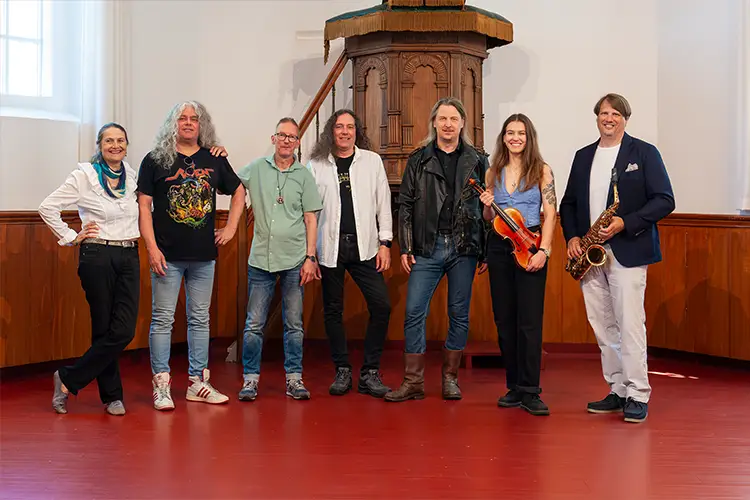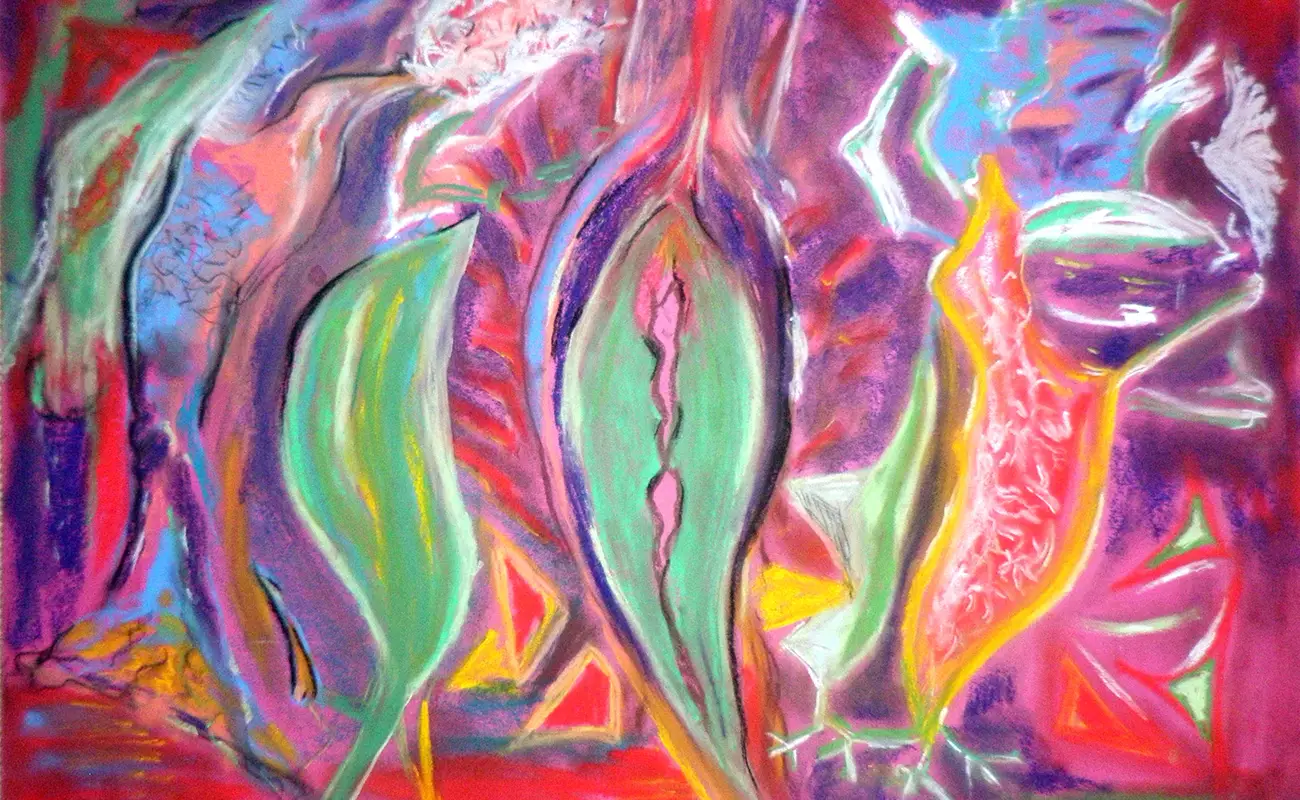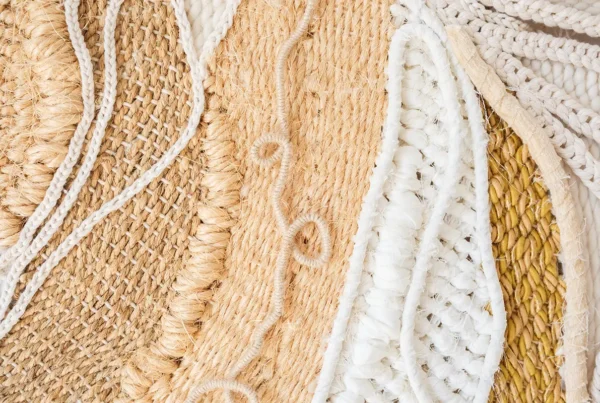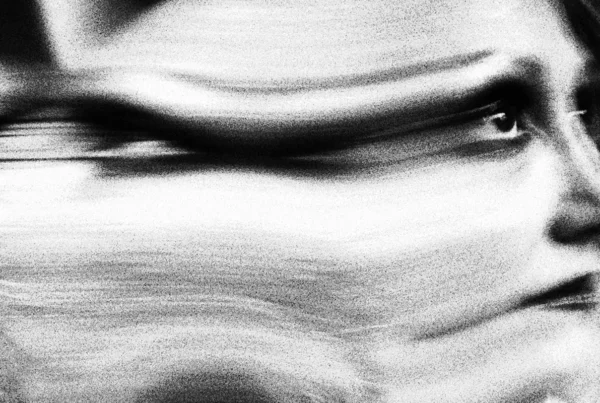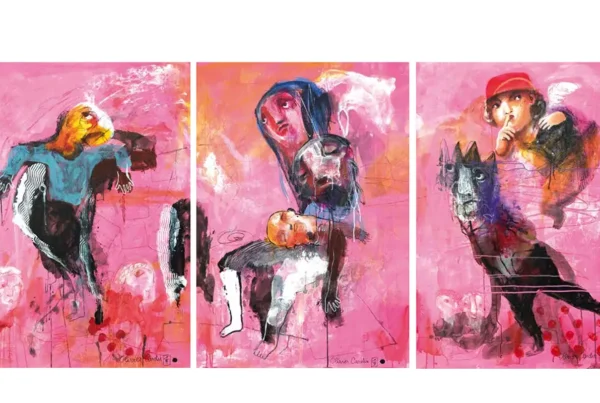“Art, for me, was never a choice — it was a necessity.”
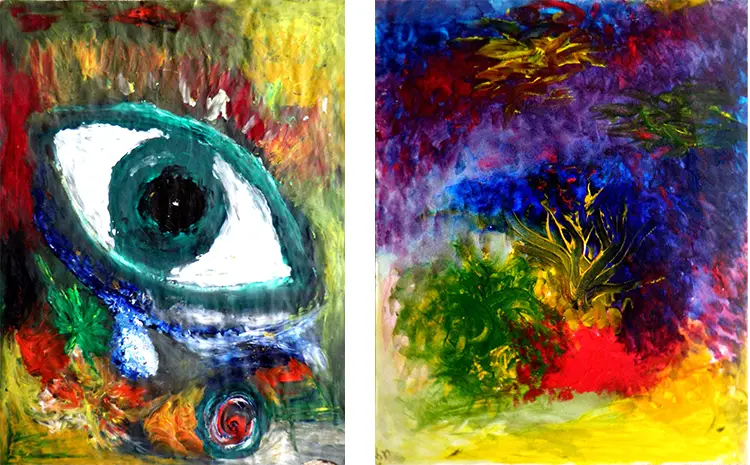
Left: Tear of the First Dawn; Right: The Thornbush. Acrylic on paper, co-created with Jörg Horner, 1993 and 1997, respectively.
The Sound of Intersections: Physics, Philosophy, and Personal Truths
In a world often divided between logic and emotion, Elmar C. Fuchs moves fluidly between the two. A trained physicist, lifelong practitioner of Japanese martial arts, and an emotionally driven composer, Fuchs approaches music with a depth forged in both intellect and introspection. He is best known as the founder and core composer of ELOAĦ, a music project born in 1995 that has matured into a rich, collaborative expression of human vulnerability and transformation. Rather than compartmentalizing his diverse pursuits, Fuchs allows them to inform one another—his scientific discipline sharpens his ear for structure and nuance, while the philosophy inherent in martial arts cultivates patience, presence, and self-examination. Together, they fuel a musical approach that is anything but conventional.
What distinguishes ELOAĦ is its fluidity—not only across musical genres but across emotional states. The project navigates a spectrum that stretches from quiet reflection to soaring catharsis, weaving together rock, jazz, classical motifs, and experimental improvisation into a sound that is both unpredictable and deeply coherent. Albums like The Mondstein Chronicles, Proud to Love You, and The Book of Pain function not merely as collections of songs, but as sonic journeys charting emotional landscapes—each track serving as a psychological waypoint. Fuchs’s compositions are not preoccupied with trend or genre loyalty; instead, they focus on evoking genuine human response, inviting listeners to inhabit their own emotions more fully through immersive soundscapes.
ELOAĦ is, in essence, music for the inward traveler. Whether through gentle acoustic arrangements or powerful instrumental climaxes, each piece is crafted to resonate with those who seek meaning beyond the obvious. Fuchs envisions art as a vehicle for expanded awareness, and ELOAĦ as an evolving conversation between intuition and form. It’s a musical language that speaks directly to those who listen not just with their ears, but with their inner lives.
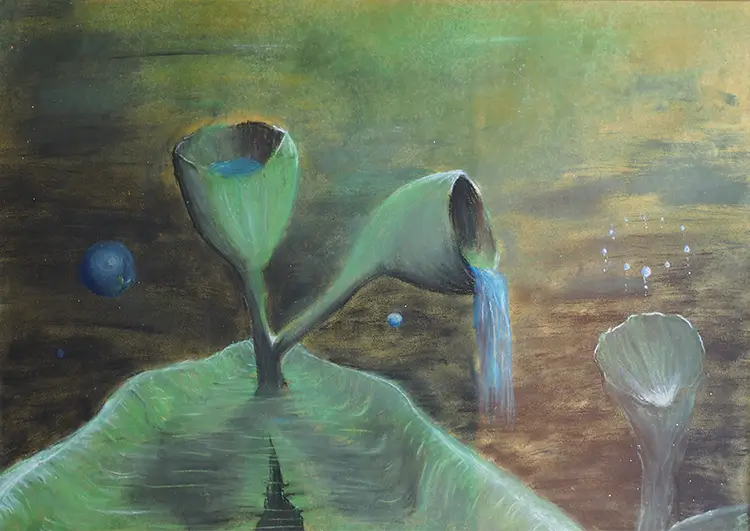
The Pouring of Worlds, pastel chalk on paper, 1995
Elmar C. Fuchs: From Solitude to Symphony
The inception of ELOAĦ was not a career decision, but a necessity of expression. Music, for Fuchs, has always been an instinctive outlet—a means of translating emotional complexity into something tangible and audible. He began with classical piano and vocal training, but it wasn’t long before his urge to create led him to songwriting. In 1995, this internal need gave rise to ELOAĦ, initially as a solo venture rooted in acoustic storytelling. Over time, what began as an introspective singer-songwriter project blossomed into a collaborative platform, drawing in musicians from across Europe and expanding into more layered, genre-bending forms.
Throughout its evolution, ELOAĦ has maintained its original mission: to explore the inner self through music. The project’s growth hasn’t diluted its sincerity—instead, it has provided a broader sonic palette for expressing grief, resilience, transcendence, and rebirth. Albums fluctuate between structured lyricism and raw improvisation, often blurring the line between composition and spiritual exorcism. Fuchs treats music as a mirror, one that doesn’t shy away from discomfort or ambiguity. Whether the track is tightly arranged or free-form, the emotional core remains constant: honesty without ornamentation.
Central to Fuchs’s process is his ability to create in solitude. He often composes at night or in quiet spaces, away from external noise, with nothing more than a piano, guitar, pen, and paper. Despite the simplicity of his workspace, what emerges is emotionally complex and often expansive in scale. Having balanced his scientific work with artistic creation for years, Fuchs has mastered the discipline of presence—knowing when to wait for inspiration and when to chase it. Creativity, in his case, is both intuitive and deliberate, sparked as often by a passing conversation or walk as by time set aside for composition.
In addition to his musical pursuits, Fuchs is also an accomplished visual artist, expressing his vision through painting and infrared photography captured during his travels around the world. His visual works often mirror the emotional and philosophical depth of his music, creating a cohesive artistic universe where sound and image reinforce one another. Many of the visual artworks associated with ELOAĦ—whether album covers, promotional materials, or thematic illustrations—are his own creations, serving as extensions of the same inner landscapes explored through sound.

Left: The Tree That Dreamed in Crimson. Kodak EIR, Olympus OM-1, taken at Tioga Pass, USA, 2010
Right: Veins of the City. Kodak EIR, Olympus OM-1, taken in Mazatlán, Mexico, 2024
Carving Sound from Silence: Style, Theme, and Emotional Architecture
What defines ELOAĦ is not a consistent musical genre but a commitment to emotional truth. Each release offers something unexpected—one might echo the complexity of jazz improvisation, another might channel the solemn grace of a classical lament, while others might lean into the atmospheric power of rock or the meditative tone of folk and gospel. This genre fluidity is deliberate, enabling Fuchs to choose whatever sonic palette best conveys the emotional message of a piece. Whether minimalistic or orchestral, what matters is that each track serves its emotional purpose without compromise.
Themes explored through ELOAĦ are as wide-ranging as its musical styles. At the heart of the work lies a deep engagement with life’s paradoxes: love that coexists with loss, strength born from vulnerability, clarity that emerges from confusion. Albums like The Book of Pain don’t just tell stories—they navigate inner terrain. The songs function as emotional case studies, meditations on suffering and renewal, and philosophical inquiries disguised as melodies. This thematic depth is reflected in both the lyrics and instrumental arrangements, which often balance simplicity with intricacy, echoing the layered nature of human experience.
Among the many tracks composed over the years, “We Shall Rise” stands out as a particularly significant piece for Fuchs. Positioned as the concluding song on The Book of Pain, it offers emotional closure to an album steeped in grief and introspection. Built around a powerful guitar riff by collaborator Orion Roos, the song transforms anguish into resolve. It’s not merely a finale—it’s a declaration. Hope, in this context, is not naive but hard-won. “We Shall Rise” encapsulates ELOAĦ’s guiding philosophy: that music can both reflect suffering and help transcend it, offering listeners a rare kind of solace.
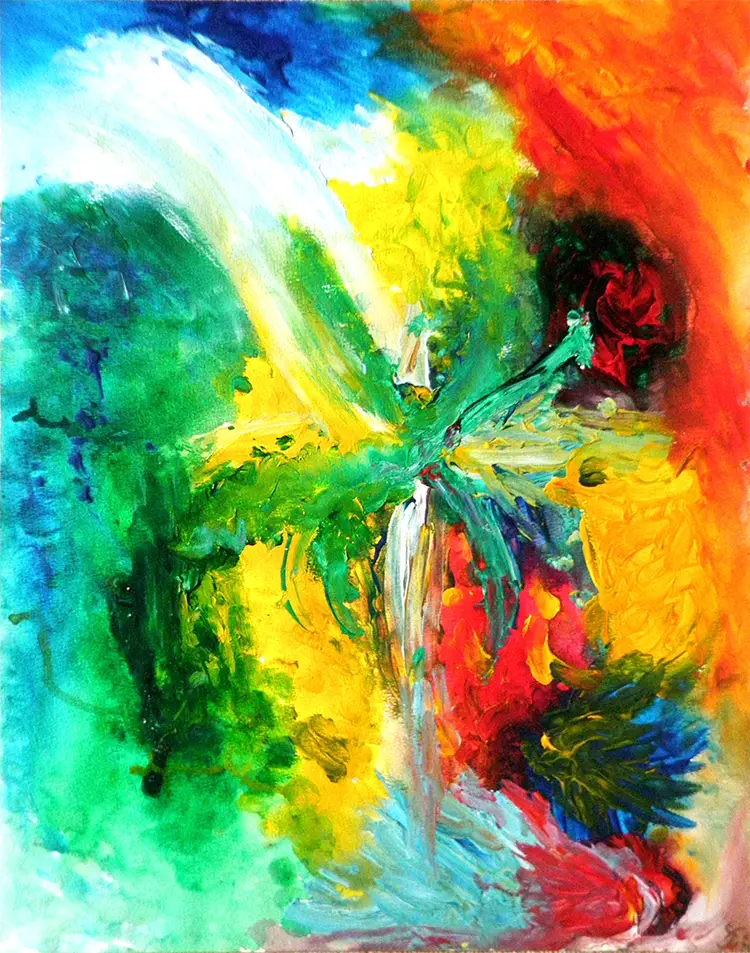
The Awakening of Light. Acrylic on paper, co-created with Jörg Horner, 1993
Elmar C. Fuchs: Soundscapes for the Soul’s Frontier
Fuchs’s influences are as diverse as his compositions. From the emotionally intricate symphonies of Dmitri Shostakovich to the spontaneous piano explorations of Keith Jarrett, he draws on artists who prioritize authenticity over formula. Rock and metal also find their way into ELOAĦ’s DNA, with bands like Savatage and Saviour Machine inspiring Fuchs’s dramatic use of narrative and dynamic contrasts. Electronic innovator Jean-Michel Jarre and ethereal folk artist Loreena McKennitt offer yet more texture to the project’s musical lineage, reinforcing its boundary-crossing ethos. These influences don’t overshadow his originality—they serve as springboards for a voice entirely his own.
However, Fuchs is quick to point out that ELOAĦ is not a solo monologue but a dialogue between many creative minds. Each contributor brings their own artistic background, shaping the project into a layered and multifaceted endeavor. The result is music that feels lived-in, textured, and diverse, reflecting not just one perspective but a convergence of artistic instincts. This collaborative nature is crucial to the evolution of the sound—it’s what prevents the project from becoming static or predictable. Each new track is a meeting point, a synthesis of experience.
Looking ahead, Fuchs envisions expanding ELOAĦ’s reach beyond recordings. One major aspiration is to craft a multidisciplinary live performance, merging music with theatre, visual art, and spoken word. Though logistical challenges remain due to the international makeup of the group, the concept remains alive. Additionally, Fuchs is working on an album of gospel-inspired hymns—an exploration of spiritual light framed through a personal lens rather than religious doctrine. It’s a testament to ELOAĦ’s evolving spirit: always reaching, always experimenting, and always rooted in emotional truth. For Fuchs, music isn’t just a craft—it’s a calling.
